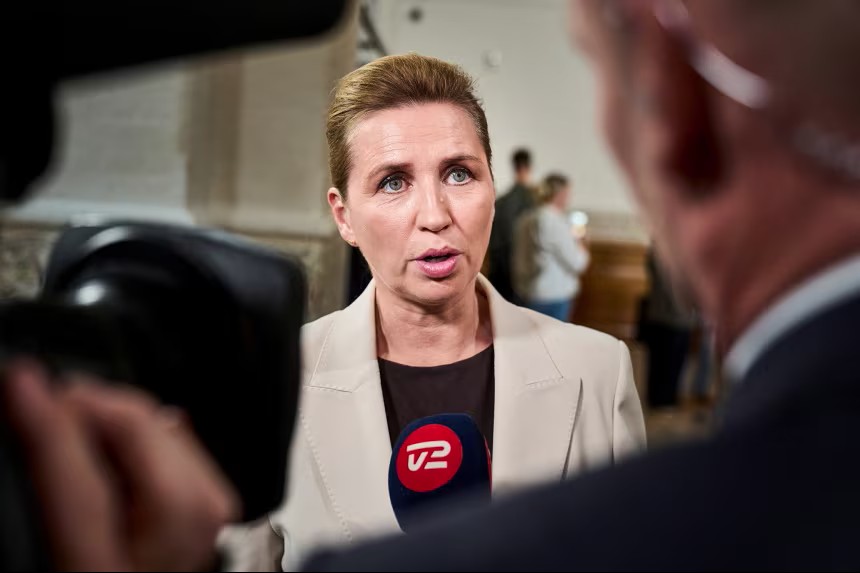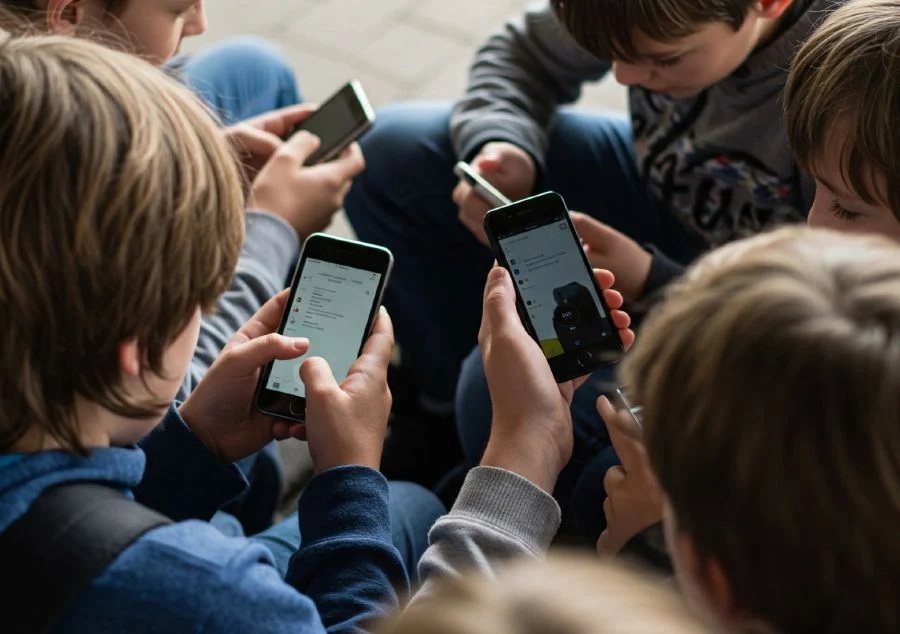As concern grows over children’s mental health and screen dependency, Denmark has announced plans to ban social media use for those under 15 — a move echoing similar legislation in Australia and other countries now taking aim at tech giants’ influence over the young.
Denmark is taking bold steps to protect its youngest citizens online, with Prime Minister Mette Frederiksen announcing plans to ban social media use for children under 15. The proposed law, unveiled during the opening of Parliament on October 1, reflects growing global concern over the effects of digital platforms on young people’s mental health, learning, and wellbeing.
Frederiksen said the legislation aims to “take better care of our children” and give parents more control, allowing them to grant consent for limited use from age 13. While mobile phones will still have a place in children’s lives for communication and safety, she warned that the unfiltered access offered by social media has created serious social and psychological problems.
“We have said yes to mobile phones in the best sense — so children can call home and communicate with their friends,” Frederiksen said. “But the reality is that we have let a monster loose. Never before have so many children and young people suffered from anxiety and depression.”

She cited concerns over increasing isolation and reduced attention spans among youth, saying that many children “see things they shouldn’t see” online and that too many “find it difficult to read and concentrate.” The prime minister also referred to alarming figures suggesting that 60% of boys aged 11 to 19 in Denmark do not see a single friend in person during their free time over the course of a week.
“Do you think that number would be so high if it weren’t for the smartphone?” Frederiksen asked. “Mobile phones and social media are stealing our children’s childhood.”
Beyond social implications, studies have shown that Gen Z kids may be losing the ability to write by hand, a cornerstone of human development and communication for over 5,000 years that is linked to cognitive growth — something that typing cannot replicate.
A GROWING MOVEMENT WORLDWIDE
The Danish proposal follows a series of measures designed to restore balance to children’s daily lives. In September, Denmark banned mobile phones in primary schools and after-school programmes after a wellbeing commission recommended the move last year. The new initiative extends that protection beyond the classroom and into children’s social environments.
Denmark’s plan mirrors similar efforts in several other countries, most notably Australia. In late 2024, Australian lawmakers became the first in the world to pass a nationwide ban on social media for users under 16. The law, which will take full effect in 2025, requires tech companies to take “reasonable steps” to prevent underage users from accessing platforms or face fines of up to 50 million Australian dollars (about RM155 million).

That legislation has drawn both praise and controversy. Advocates see it as a necessary safeguard against online exploitation and psychological harm, while major platforms — including TikTok and Meta — have lobbied against it, citing their own content moderation tools and parental control settings. TikTok, for instance, argued that it provides educational and creative opportunities, while critics say such claims overlook the addictive design of social media and its impact on children’s development.
Norway, too, has been moving in the same direction. Earlier this year, Prime Minister Jonas Gahr Støre’s government launched a public consultation for a proposed ban on social media for those under 15, aiming to address rising mental health challenges and excessive screen time.
These moves collectively signal a wider shift among governments — particularly in Europe and the Asia-Pacific region — toward limiting digital exposure among minors and redefining how social media companies manage young users.
DIGITAL CHILDHOODS UNDER PRESSURE
Researchers have repeatedly linked excessive social media use with higher rates of depression, anxiety, and body image issues among adolescents. The constant flow of online content, notifications, and peer comparison has also been tied to declining attention spans and reduced real-world interaction.
Denmark’s wellbeing commission, established in 2023, warned that digital dependency was eroding key aspects of childhood — from outdoor play and reading habits to face-to-face friendships. Its findings formed part of the rationale for both the school phone ban and the new social media restrictions.
While critics say enforcing such laws could prove challenging, supporters argue that governments have a duty to act. The proposed Danish law would likely require platforms to strengthen age verification systems, which could involve digital IDs or parental consent mechanisms similar to those being developed in Australia.
Frederiksen acknowledged that technology itself is not inherently harmful but stressed that unregulated access has outpaced children’s ability to cope. “We cannot just leave this to algorithms or corporate promises,” she said. “It is our responsibility as adults to set boundaries.”

BALANCING FREEDOM AND PROTECTION
As with Australia’s law, Denmark’s proposal has already sparked debate over privacy, enforcement, and parental rights. Critics argue that digital bans might push children toward unregulated platforms or fake accounts. Others see it as an overdue correction to years of unchecked influence by social media companies.
In recent months, tech executives have been called before parliamentary committees in both Europe and North America to answer questions about youth safety online, including the impact of algorithms that promote harmful content. Global regulators have also increased pressure on platforms to ensure compliance with age-appropriate design codes and data protection rules.
If approved, Denmark’s social media ban would make it one of the strictest child-protection laws in Europe. The proposal is expected to be debated in Parliament later this year, with implementation possibly starting in mid-2026.
For Frederiksen, the message is clear: “It’s time to give our children back their childhood.”



















